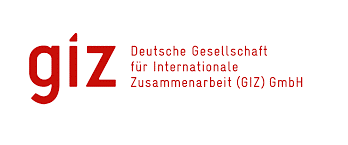Team Europe Technical Assistance Facility to support AfCFTA and Continental Economic Integration
Objective
-
€24.5 mBUDGET
-
01/01/2022PROJECT START
-
35 monthsDURATION
The “Technical Assistance Facility to support the African Continental Free Trade Area (AfCFTA) and Continental Economic Integration” aims to enhance the continent's capacity to deliver on Agenda 2063 and 2030.
It will provide targeted and on-demand support to strengthen and complement the capacities of beneficiaries to respond to their evolving priority needs related to the AfCFTA negotiation and implementation process.
This strategic project responds to the needs of the African Union (AfCFTA Secretariat, African Union Commissions and Specialized agencies), Regional Economic Communities, African Union Member States, continental and regional private sector organizations, and other potential partners working on AfCFTA and continental economic integration.
It covers the period from 2021 to 2024 with a €24.51.16m funding provided by the European Union, Germany, France and Sweden and it is implemented by GIZ (as a lead implementing partner), Expertise France, and FIIAPP.
Contributing to the African economic integration process
The overall objective of the technical assistance facility is to contribute to the African economic integration process through the realization of the African Continental Free Trade Area. More specifically, partners join forces to:
• Enhance the capacity of the AfCFTA Secretariat in the framework of AfCFTA implementation;
• Strengthen the institutional capacity of African institutions and State Parties to successfully implement the AfCFTA and improve regulatory practices for continental trade.
Five lines of action for concrete results on the ground
The actions implemented within the framework of this project revolve around five main outputs.
1- Strengthening the capacity of the AfCFTA Secretariat to manage ongoing negotiations and oversee the implementation of the AfCFTA Agreement
Short- & long-term expertise is mobilized to support the AfCFTA Secretariat on key issues including in the area of rules of origins and competition policy, to inform the negotiations.
Events are organized to gather the stakeholders, such as the consultative meetings on trade policy review (March and May 2023) which aimed at establishing a framework for revising the agreement.
2- Strengthening the African Union Commission’s capacity to promote Continental Economic and Industrial policies that complement the AfCFTA
The latest achievements include:
• Sponsorship of over 60 MSMEs to attend events such as the 2nd African Union MSMEs Forum and AGJEC Africa Gem, Jewellery Exhibition & Conference in Zambia in July 2023, focusing on the development of regional mining value chains.
• Support for the organization of the International MSME Day at the African Union, Ethiopia, July 2023
• Support for the implementation of the African Union's SME strategy through the establishment of the Business Network Africa, Benin, June 2023.
• Short- & long-term expertise mobilization at the African Union Commission, especially in communication on regional integration and trade issues, mineral policies, and SMEs support.
3- Enhancing the abilities of selected Regional Economic Communities (RECs) and African Union specialized agencies to implement AfCFTA-related priority reforms and facilitate cross-REC exchanges
As an example, the regional implementation strategy of the AfCFTA for the East African Community has been revised during a technical review workshop held in Kenya and a validation workshop that took place in Rwanda in August 2023.
4- Strengthening the capacities of State Parties to implement AfCFTA commitments and enhance their trade regulatory practices
The actions include the development of an AfCFTA training manual for Ethiopia as well as an in-depth study of Ghana’s services sector under the AfCFTA framework for instance.
5- Boosting the engagement of continental and regional private sector organizations in AfCFTA
This line of action aims to strengthen the commercial capacities of the private sector with an on-demand (ad hoc) mechanism that addresses the targeted needs of the various stakeholders.
Active participation in significant events such as the AfCFTA Business Forum has been instrumental in engaging with private-sector organizations.

A few figures on the AfCFTA
The African Continental Free Trade Area (AfCFTA) is expected to create the world’s largest free trade area by creating a single market for goods and services of almost 1.3bn people across Africa and deepening African economic integration.
The AfCFTA, if effectively implemented, is expected to boost intra-African trade by an impressive 81% and elevate the continent's exports by 29%. By 2035, it's anticipated to enhance Africa's GDP by $450 billion and uplift 30 million individuals from extreme poverty.
As of August 2023, 47 of the 54 signatories (87%) have deposited their instruments of AfCFTA ratification.
 For more information on the AfCFTA: https://au-afcfta.org/
For more information on the AfCFTA: https://au-afcfta.org/
 For further information on the African Union Commission - Economic Development, Tourism, Trade, Industry, Mining (ETTIM): https://au.int/en/ettim
For further information on the African Union Commission - Economic Development, Tourism, Trade, Industry, Mining (ETTIM): https://au.int/en/ettim
Follow the project on social media:











